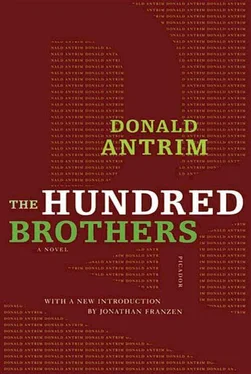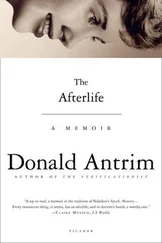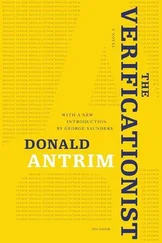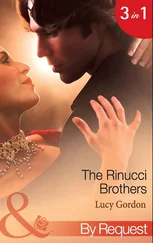The entire novel is shadowed by the insight, or fear, or premonition, that postmodernity doesn’t lead us forward but backward to the primitive: that our huge and hard-won sum of knowledge will ultimately prove useless and be lost. Already in the book’s early pages, describing the eighteenth-century pornography that some of the married brothers are huddled over, Doug has intimations of this loss. “The Age of Enlightenment’s inattention to hygiene is well documented,” he remarks. “A certain syphilitic degeneracy lurks in these bookplate etchings of rheumy aristocrats making doggy love with their hats on.” In the latter half of the novel, the intimations of decay become a drumbeat, culminating in the brilliant scene in which Doug himself ecstatically, with his urine, amid the shelved works of Liberal Theologians, Antiquaries, and Bibliographers, “hoses down, as they say, a few literary masterpieces.” In the despair that grips Doug after this ecstatic moment, the dissolution of the library becomes increasingly indistinguishable from what’s happening to him. The man has become the world, the world has become the man; the solipsism is complete; the narrative has gone fully mad.
The craziness of The Hundred Brothers derives from its willingness to embrace, even celebrate, the dark fact that an individual’s life consists, finally, of an accelerating march toward decay and death. The novel is a Dionysian dream in which nothing, not even sanity, can escape the corrosive chaos of this circumstance; but its form is bravely Apollonian. It renders lonely solipsism universal and humane by way of rite and archetype and artistic excellence. What Nick Carraway says about his friend Jay Gatsby could also be said of the scapegoat Doug: he turns out all right at the end. The rest of us, his brothers and sisters, awaken from the harrowing dream refreshed and better able, as Doug says with equal parts of irony and hope, to “prosper and thrive.”
MY BROTHERSRob, Bob, Tom, Paul, Ralph, Phil, Noah, William, Nick, Dennis, Christopher, Frank, Simon, Saul, Jim, Henry, Seamus, Richard, Jeremy, Walter, Jonathan, James, Arthur, Rex, Bertram, Vaughan, Daniel, Russel, and Angus; and the triplets Herbert, Patrick, and Jeffrey; identical twins Michael and Abraham, Lawrence and Peter, Winston and Charles, Scott and Samuel; and Eric, Donovan, Roger, Lester, Larry, Clinton, Drake, Gregory, Leon, Kevin, and Jack — all born on the same day, the twenty-third of May, though at different hours in separate years — and the caustic graphomaniac, Sergio, whose scathing opinions appear with regularity in the front-of-book pages of the more conservative monthlies, not to mention on the liquid crystal screens that glow at night atop the radiant work stations of countless bleary-eyed computer bulletin-board subscribers (among whom our brother is known, affectionately, electronically, as Surge); and Albert, who is blind; and Siegfried, the sculptor in burning steel; and clinically depressed Anton, schizophrenic Irv, recovering addict Clayton; and Maxwell, the tropical botanist, who, since returning from the rain forest, has seemed a little screwed up somehow; and Jason, Joshua, and Jeremiah, each vaguely gloomy in his own “lost boy” way; and Eli, who spends solitary wakeful evenings in the tower, filling notebooks with drawings — the artist’s multiple renderings for a larger work? — portraying the faces of his brothers, including Chuck, the prosecutor; Porter, the diarist; Andrew, the civil rights activist; Pierce, the designer of radically unbuildable buildings; Barry, the good doctor of medicine; Fielding, the documentary-film maker; Spencer, the spook with known ties to the State Department; Foster, the “new millennium” psychotherapist; Aaron, the horologist; Raymond, who flies his own plane; and George, the urban planner who, if you read the papers, you’ll recall, distinguished himself, not so long ago, with that innovative program for revitalizing the decaying downtown area (as “an animate interactive diorama illustrating contemporary cultural and economic folkways”), only to shock and amaze everyone, absolutely everyone, by vanishing with a girl named Jane and an overnight bag packed with municipal funds in unmarked hundreds; and all the young fathers: Seth, Rod, Vidal, Bennet, Dutch, Brice, Allan, Clay, Vincent, Gustavus, and Joe; and Hiram, the eldest; Zachary, the Giant; Jacob, the polymath; Virgil, the compulsive whisperer; Milton, the channeler of spirits who speak across time; and the really bad womanizers: Stephen, Denzil, Forrest, Topper, Temple, Lewis, Mongo, Spooner, and Fish; and, of course, our celebrated “perfect” brother, Benedict, recipient of a medal of honor from the Academy of Sciences for work over twenty years in chemical transmission of “sexual language” in eleven types of social insects — all of us (except George, about whom there have been many rumors, rumors upon rumors: he’s fled the vicinity, he’s right here under our noses, he’s using an alias or maybe several, he has a new face, that sort of thing) — all my ninety-eight, not counting George, brothers and I recently came together in the red library and resolved that the time had arrived, finally, to stop being blue, put the past behind us, share a light supper, and locate, if we could bear to, the missing urn full of the old fucker’s ashes.
It was a wretched, pewter-colored day. The red library walls were haunted by shadows and light cast from a multitude of low-wattage reading lamps that haloed the tables on which they sat illuminating our laps as we flopped down on sofas and chairs overhung by English hunt prints and the heads of game animals, mounted, desolate, African, gazing out from rectangles of wall framed in wood shelves crowded with Victorian matched sets and works by obscure poets.
“I hate this room. It stinks of death,” whispered Virgil, wedged beside me on a love seat. Virgil often felt, or he seemed to feel, to have felt, since his childhood, frightened and oppressed. It was impossible to say or do anything to make life less unpleasant for him. Nevertheless, we tried. “Lighten up,” I told him. A line of our brothers scuffed past us in search of places to sit. The library was filling with male energy and low sounds of voices saying, “Hey, man, scoot over and make space.” Soon it would be standing room only. The musty air would grow lush with our smells of sweat, shaving lotions, exhaled humid breaths. God help us. Already Virgil was hunched over on our shared cushiony seat, looking moist and claustrophobic with his head hovering between his knees, watery eyes scrutinizing the carpet. “Try reading a magazine,” I suggested. Then, from a distant corner of the room — a crash, the jolting shatter of glass exploding, a lamp going down. This always happens when we crowd together in the red library: someone trips on a cord or backs into a three-legged table flaunting a bud vase, or hurls his body too heavily onto a chair, with the result that some objet or piece of heirloom furniture winds up noisily destroyed; it’s alarming and inevitable and laughable. Today’s mishap appeared to be the work of Max, who, clearly startled by the overturned light’s impact, the noisy report of breaking china, stopped a moment to stare down at the lamp cord snarled around his ankle, the black electrical line snaking across the floor through porcelain strewn in brilliant white ruin near his shoes (the tiny conical lampshade having sprung free and gone flying, nearly knocking another lamp from another table), before looking up to gaze slowly here and there around the hushed room, then ask no one in particular, “Did I do that?”
Poor Maxwell. Ever since his return, last month, from a pharmacological botanical specimen — gathering expedition, he’s been noticeably agitated, clumsy and distracted in the manner of one plagued by either fever or crisis. Apparently, something strange had happened in Costa Rica, and now Max was walking into things and breaking them, at a rate of about one electrical fixture, decorative serving dish, potted plant, or item of statuary every three days.
Читать дальше












